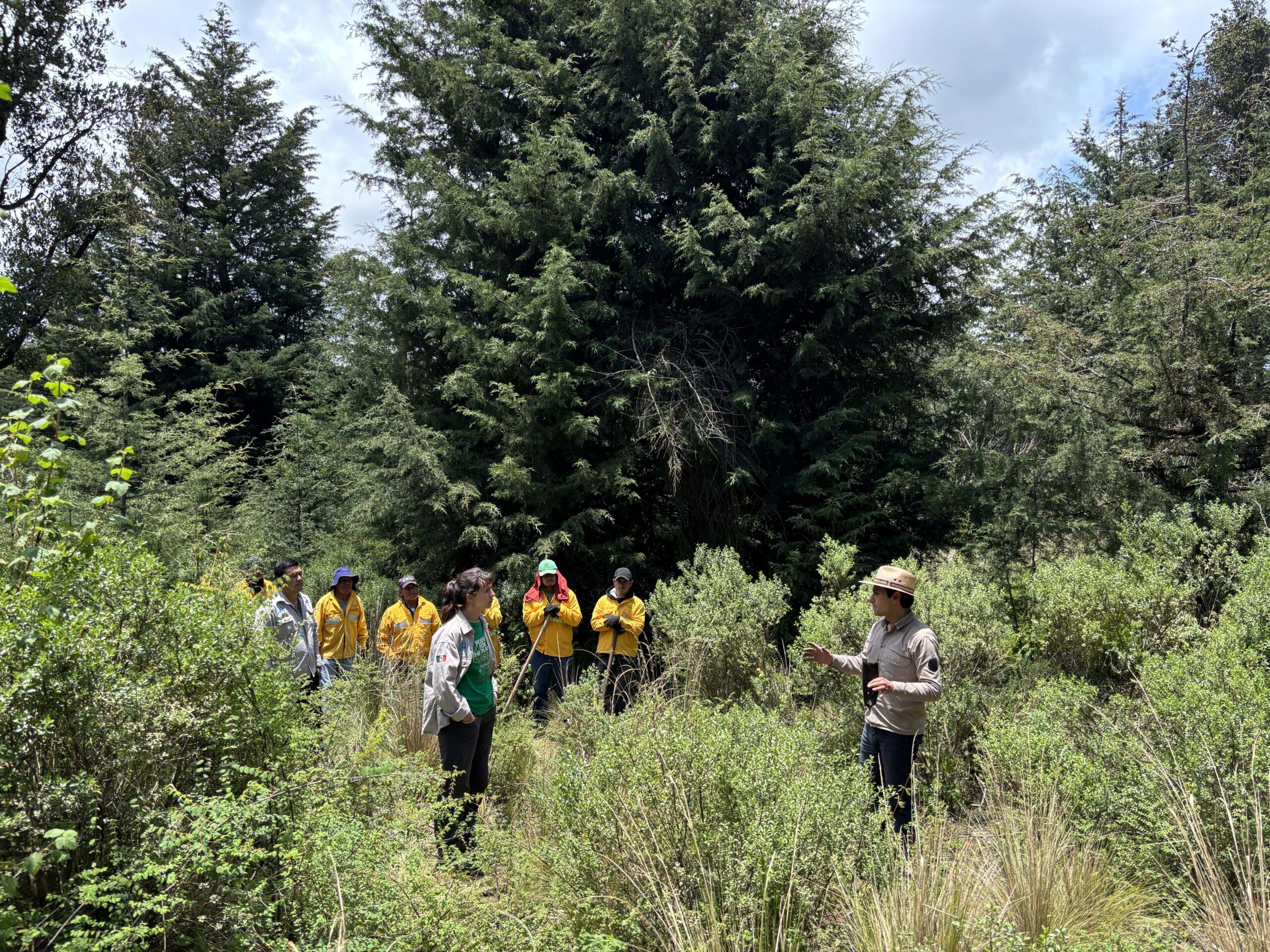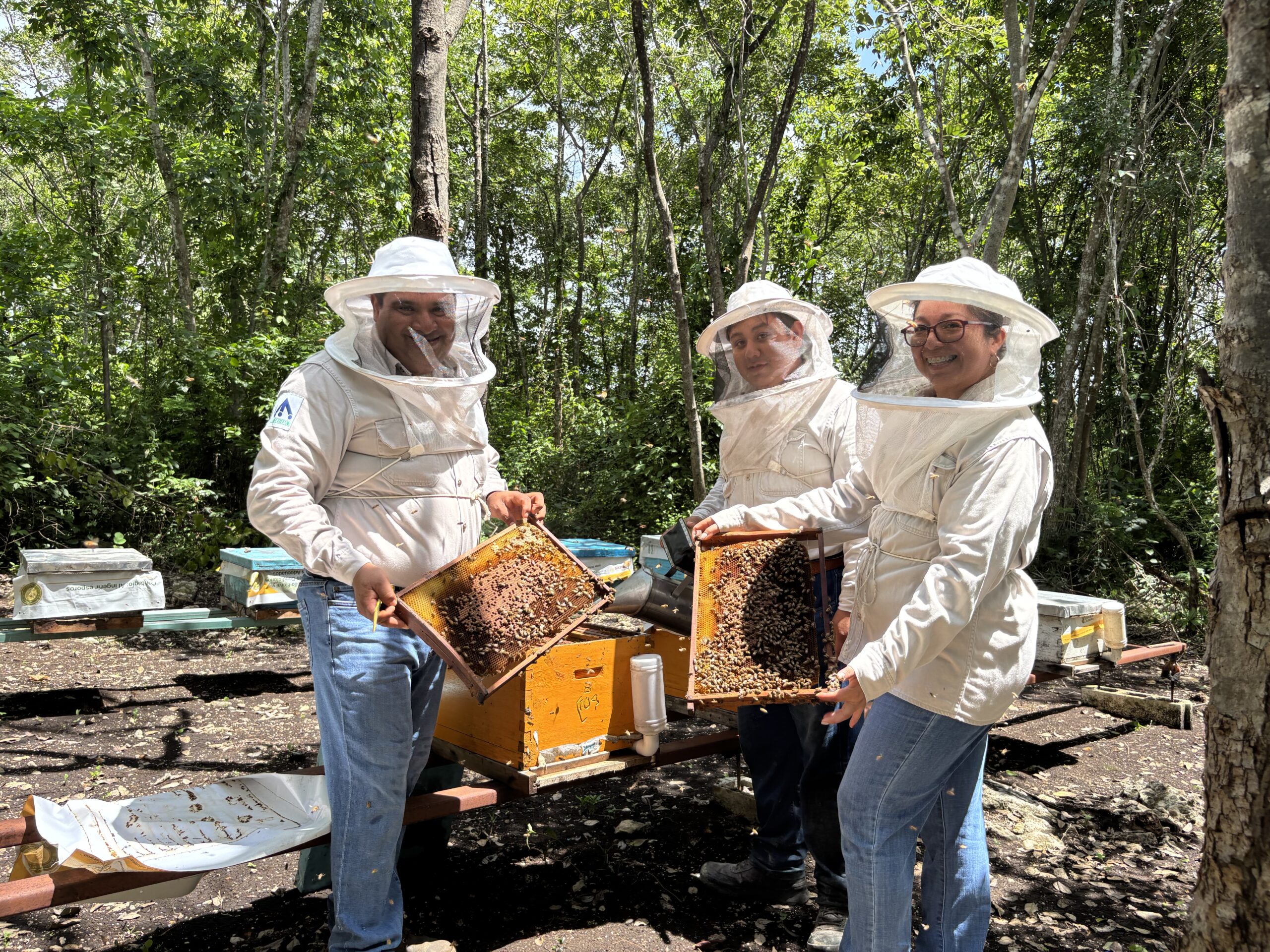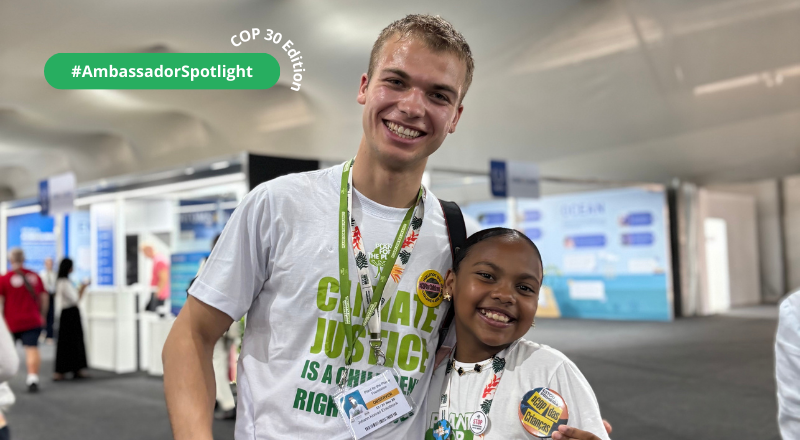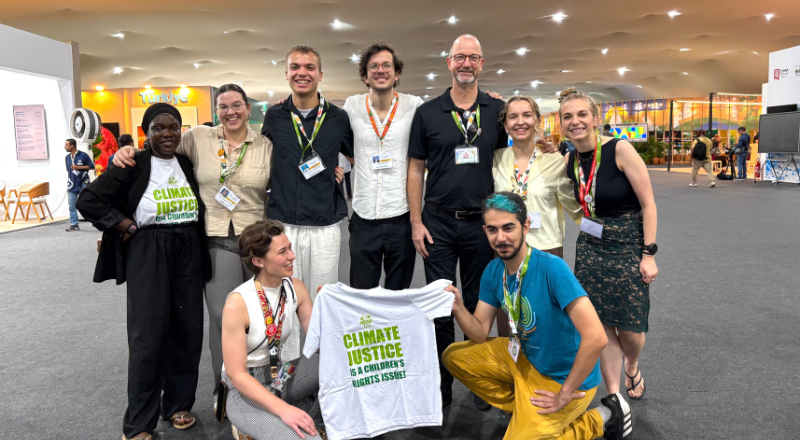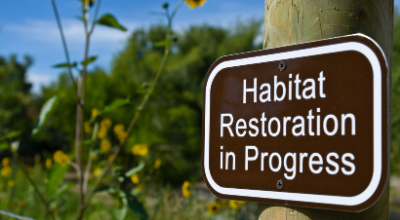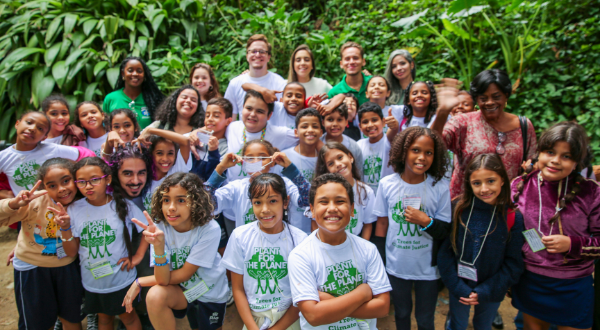
In 2025, as the world turns its attention to COP 30 in Belém, Brazil, one thing is clear: the climate negotiations can no longer remain a conversation of governments alone. For the children and young people who will live through the long-term consequences of today’s decisions, the climate crisis is not a distant policy debate — it is their everyday reality and their future.
For more than 10 years, Plant-for-the-Planet Brazil has been empowering young people in Brazil, in more than 11 Brazilian states, to take their rightful place at the center of this fight. From its Climate Justice Academies to grassroots campaigns, the organization has created safe, inclusive spaces where children learn, teach, and lead. Now, with COP 30 taking place on home soil, Plant-for-the-Planet Brazil is making sure that the youngest voices will not be sidelined, but instead will shape the global agenda.
The Power of Youth in Brazil
“Youth have always been at the forefront of change in Brazil,” explains Luciano Frontelle, Executive Director of Plant-for-the-Planet Brazil, in a recent conversation. “From resistance movements against dictatorships to today’s climate activism, young people are often leading the actions. But it is only in the last two decades that youth have begun to be recognized as persons of rights under Brazilian law.”
This recognition is long overdue. Despite stereotypes that young people are disengaged or only “on TikTok,” Luciano highlights the reality: “They are both — enjoying their youth and leading the fight for their future. But systemic inequalities, economic pressures, and lack of time often prevent many from engaging as much as they would like. That is why spaces that center their voices are crucial.”
Why Spaces Like Academies Matter
At the heart of Plant-for-the-Planet’s work in Brazil are the Climate Justice Academies, where children aged 8–14 learn about the climate crisis and how to take action. By 2025, more than 5,000 children in Brazil have already been trained as Climate Justice Ambassadors. But these are not classrooms where young people sit silently.
“In our Academies, children don’t just receive information — they exchange it,” says Luciano. “They share what they notice changing in their communities, what their parents have told them has already changed, and what they hope won’t change in the future. They see themselves not just as students, but as teachers, as Ambassadors.”
By training Climate Justice Ambassadors, we ensure that children begin to see themselves as worthy of being heard. These spaces build confidence, foster intergenerational dialogue, and transform climate education into climate empowerment.
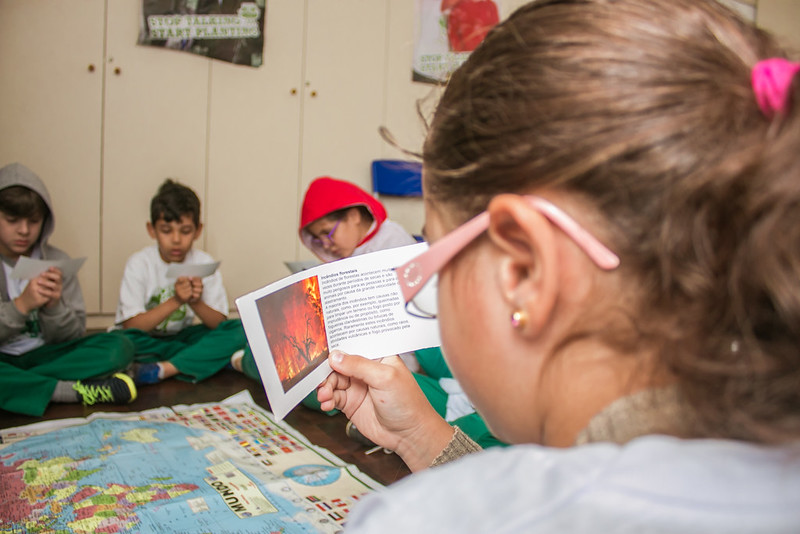
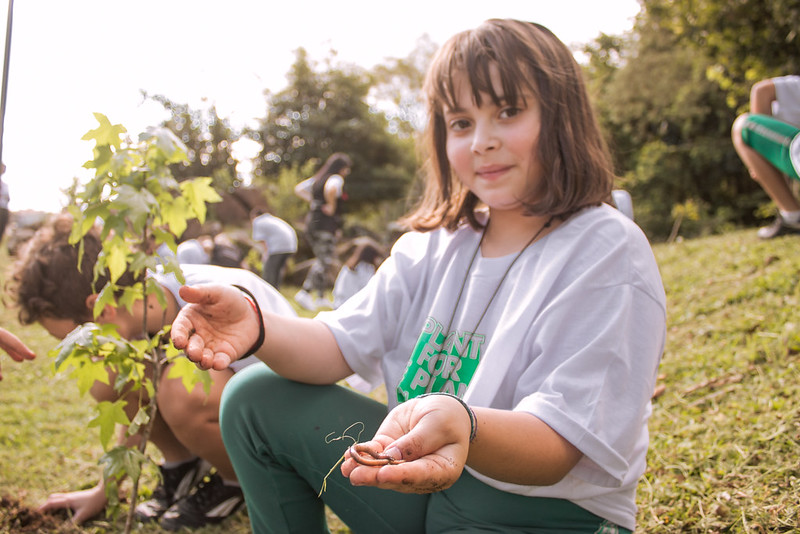
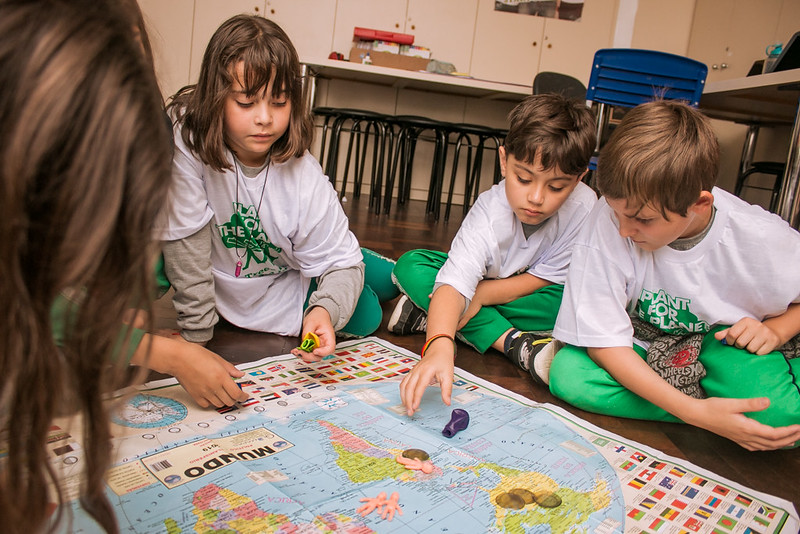
A Moral Necessity at COP 30 and GES
With COP 30 coming to Brazil, the spotlight is on Belém — and on the question of how inclusive the process will truly be. Traditionally, climate negotiations are the realm of governments. Civil society, and especially youth, often fight hard to have their perspectives heard.
“Nothing about us without us,” says Luciano, quoting a Brazilian saying: nada sobre nós, sem nós. “If you want to talk about our future, you must include us in the debate.”
This principle lies at the core of the Global Ethical Stocktake (GES), a new process initiated by the COP 30 Presidency. Unlike the Paris Agreement’s technical Global Stocktake, the GES emphasizes the moral and ethical dimensions of the climate crisis. While youth are explicitly mentioned in the process, children are not — a gap Plant-for-the-Planet is determined to fill.
Through self-organized dialogues, children will articulate their experiences, hopes, and demands. The dialogues will take place in countries across the Global North and South: Germany, Brazil, Chile, Colombia, India, Mexico, Nepal, Nigeria, and Uganda. Their insights will be submitted to the COP30 Presidency, and a delegation of 30 trained Climate Justice Ambassadors from Belém will represent children globally at COP 30.
This is not symbolic. As Luciano puts it: “Children are not only victims of the climate crisis — they are agents of change. Including their voices is not optional. It is a moral necessity.”
Do you want to join? Follow this guide and make your voice heard at COP 30 with us.
From Climate Justice to Climate Empowerment
When we speak of climate justice, it can sound abstract. But for children in Brazil, it is deeply personal. “Some are refugees. Some are orphans. Others live with siblings suffering respiratory illnesses due to air pollution. Many see floods, droughts, and food insecurity directly shaping their daily lives,” Luciano explains.
“Climate justice means recognizing that while everyone is affected, some are far more impacted than others,” says Luciano. “Those with privilege have a responsibility to act, and countries that historically contributed most to the crisis must support those who are suffering today.”
At its core, Plant-for-the-Planet’s work is about transforming that injustice into empowerment — so that children not only endure the consequences of the climate crisis but actively shape the solutions.
Looking Ahead to COP 30
COP 30 is often described as a highly technical process, distant from everyday life. But as Luciano reminds us, its outcomes are profoundly personal: “They are deciding how much money will be invested, so lives can be saved, so food can be healthier, so houses don’t get flooded. This is not about abstract numbers — it’s about our quality of life.”
For the children of Brazil, COP 30 represents both a challenge and an opportunity. A challenge, because they are among the most vulnerable to climate impacts. But an opportunity, because for the first time, the COP will take place in their home country, and their voices will be impossible to ignore.
With a decade of experience in empowering young people, Plant-for-the-Planet Brazil stands ready to ensure that the next generation does not just sit in the audience — but takes the microphone.
As the world heads toward Belém in 2025, one message resounds clearly: If we are serious about climate justice, we must start by listening to children.
You can read more about the Brazilian youth pushing for climate action towards COP 30, here.
